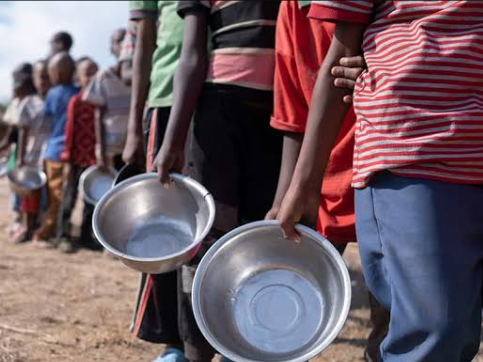Nigeria has been listed among countries facing severe hunger crises, according to a new joint report by the United Nations Food and Agriculture Organisation (FAO) and the World Food Programme (WFP).
The report, released on Wednesday in Rome, warns that millions more people worldwide are at risk of sliding into famine as conflict, climate shocks, and dwindling humanitarian funding worsen existing food emergencies.
According to the UN agencies, Haiti, Mali, Palestine, South Sudan, Sudan, and Yemen are among the countries facing the most catastrophic levels of hunger, with populations “at imminent risk of starvation.”
Nigeria, alongside Afghanistan, the Democratic Republic of the Congo, Myanmar, Somalia, and Syria, has been classified as a country of “very high concern.” Other nations identified include Burkina Faso, Chad, Kenya, and the Rohingya refugee settlements in Bangladesh.
“We are on the brink of a completely preventable hunger catastrophe that threatens widespread starvation in multiple countries,”
warned WFP Executive Director Cindy McCain, calling for urgent global action.
The agencies raised alarm over a critical funding shortfall, revealing that only $10.5 billion of the required $29 billion has been received to support populations most at risk.
As a result, the WFP said it has been forced to scale down assistance in several regions, including cuts to food rations for refugees and the suspension of school feeding programmes in some countries.
The FAO also cautioned that agricultural livelihoods that are vital for stabilising food production and reducing dependency on aid—are increasingly threatened. The organisation called for immediate investment in seeds, tools, and livestock health services ahead of upcoming planting seasons to prevent further deterioration.
The report underscores the worsening humanitarian situation in Nigeria, where persistent insecurity in the North-East and parts of the Middle Belt continues to disrupt farming, displace communities, and limit access to food.
With inflation and unemployment rates also climbing, experts warn that without urgent intervention, millions more Nigerians could face acute food insecurity in the months ahead.








